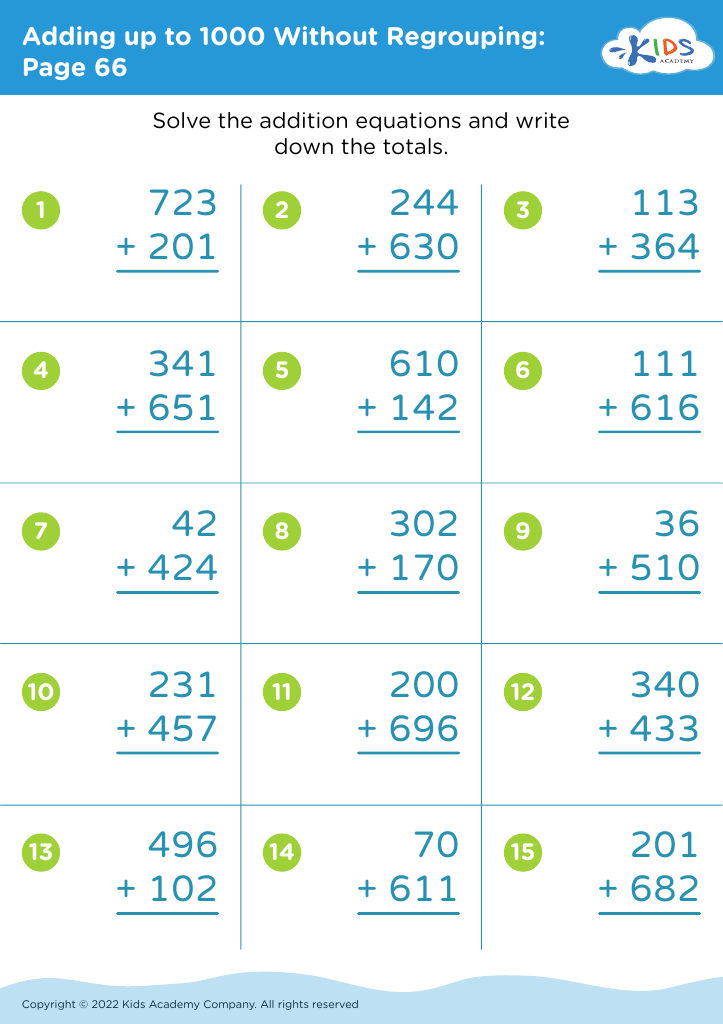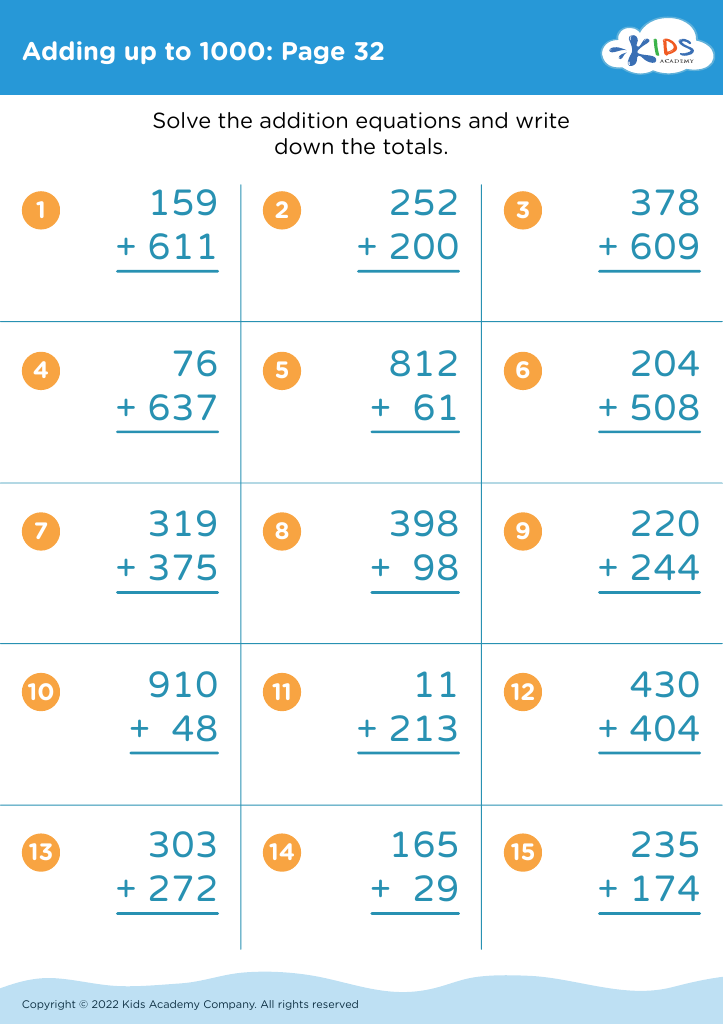Recognize shapes Adding up to 1000 Worksheets for Ages 5-7
4 filtered results
-
From - To
Explore our "Recognize Shapes Adding Up to 1000 Worksheets" designed specifically for children ages 5-7. These engaging worksheets aim to enhance your child's understanding of shapes while incorporating essential math skills like addition up to 1000. With colorful, interactive designs, kids will learn to identify various shapes and practice adding numbers effectively. Each worksheet offers both visual stimulation and educational value, ensuring a fun learning experience. Ideal for classroom and homeschool environments, these printable resources encourage critical thinking and reinforce math concepts in a hands-on way. Foster your child's love for learning with our innovative and interactive worksheets today!
Recognizing shapes and understanding the concept of numbers adding up to 1,000 is crucial for students aged 5-7, as it lays the foundation for their mathematical and cognitive development. At this age, children are highly receptive to learning through visuals and hands-on activities. Teaching them to recognize shapes helps develop spatial awareness, which is essential for problem-solving and logical thinking. Shapes are everywhere in our environment, and identifying them fosters creativity and enhances everyday skills like reading maps or understanding building structures.
Equally important is introducing the idea of numbers adding up to an abstract total, such as 1,000. While this may seem out of reach for young learners, exposure to this concept encourages number sense and introduces them to basic addition strategies. Understanding that numbers can form larger concepts allows children to develop their skills in estimation and measurement, which are key components of their overall numerical literacy.
By emphasizing these skills, parents and teachers promote a love for mathematics early on, offering students a solid foundation for more advanced arithmetic and geometric concepts in the future. Supporting children in these areas not only fosters academic success but also builds confidence in their ability as learners.















